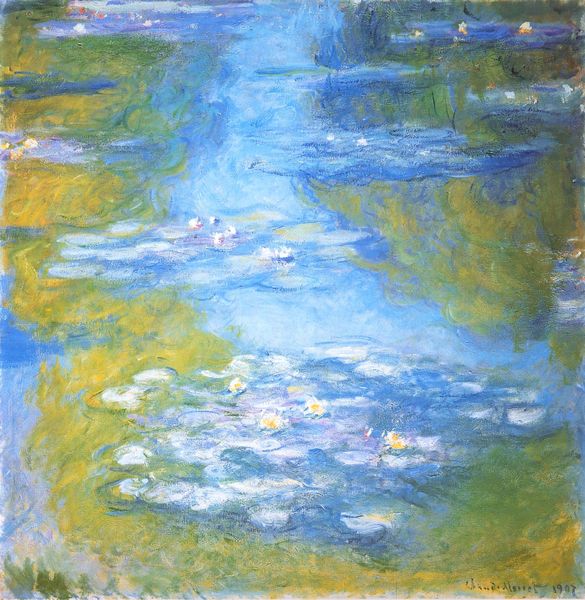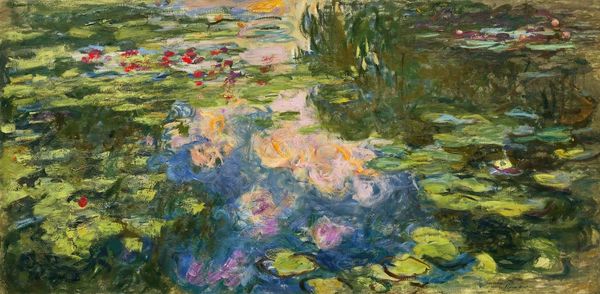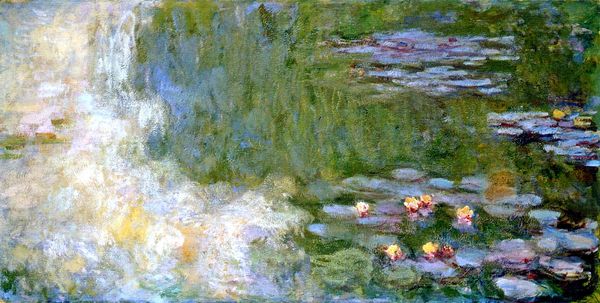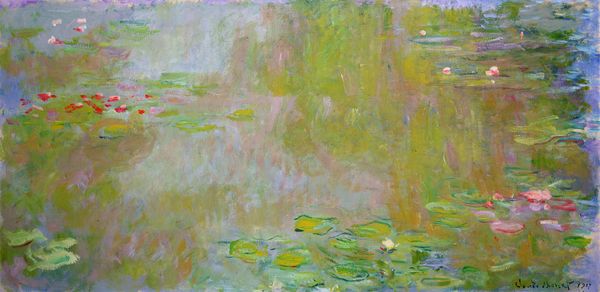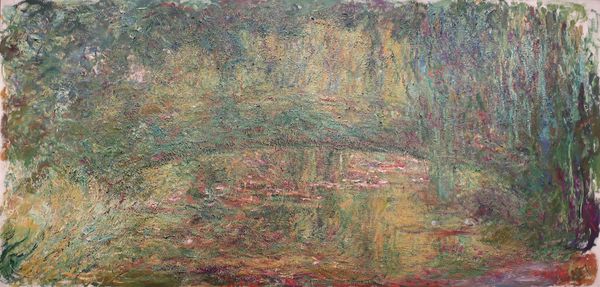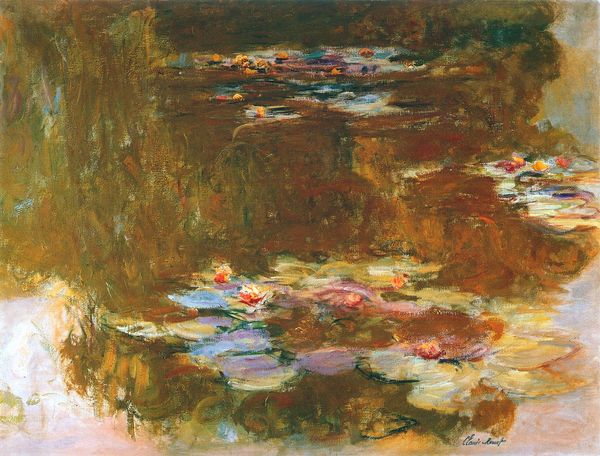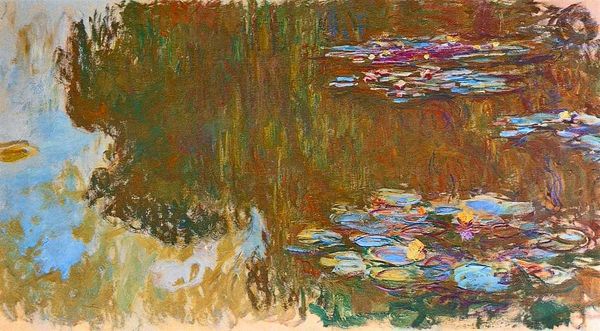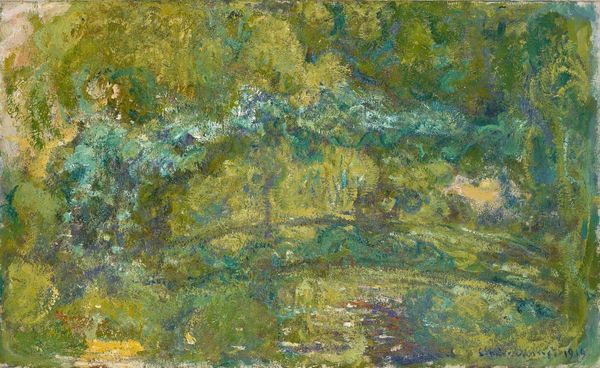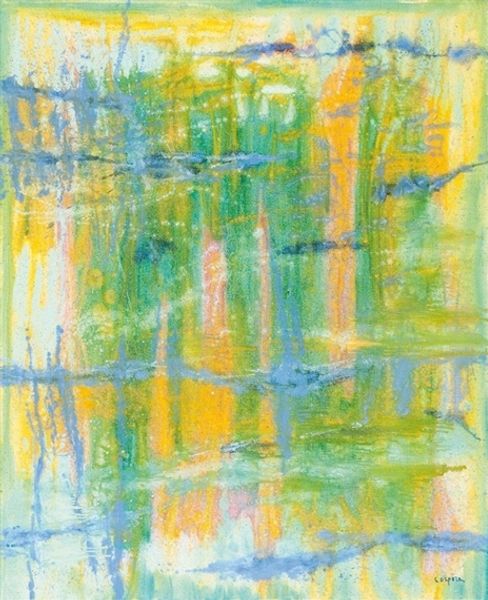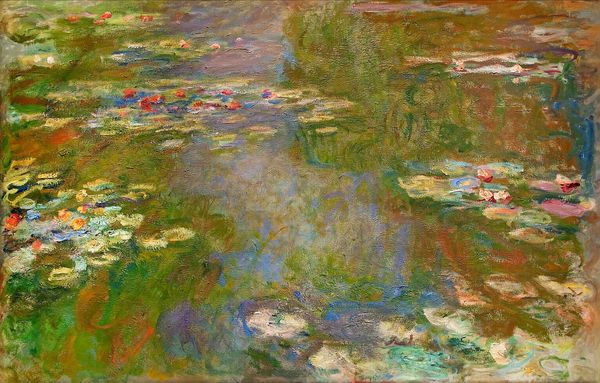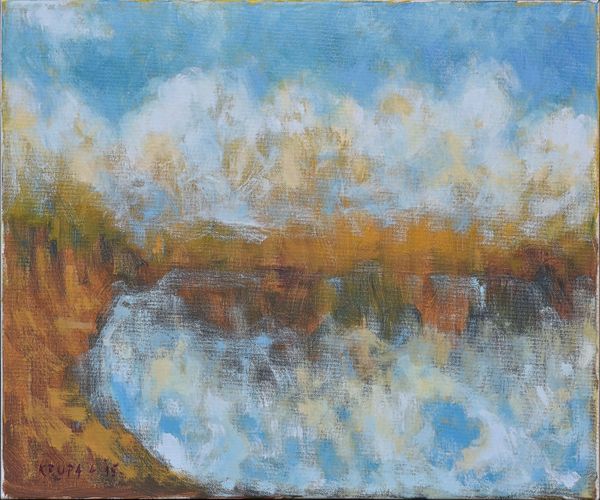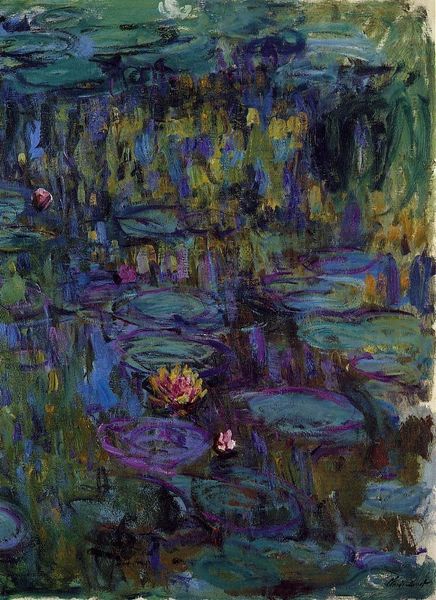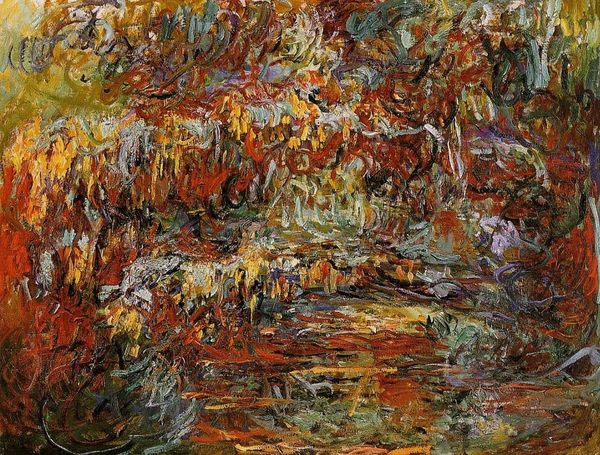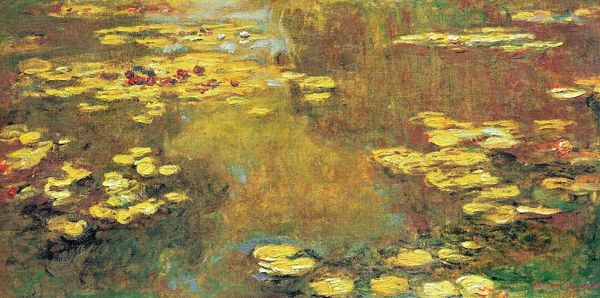
Copyright: Public domain
Curator: Oh, my. It's... dreamy. It feels like floating, doesn't it? All that gorgeous blue merging with... well, everything else. Like a whispered memory of summer. Editor: Indeed. We’re standing before Claude Monet’s "The Water Lily Pond X," completed in 1919. It’s part of the artist’s celebrated series capturing the water garden at his home in Giverny. Note the lack of horizon—we’re plunged into a space that prioritizes the surface. Curator: Plunged is exactly the right word. It’s like you’re *in* the pond. I imagine that’s what it's like to be a frog… Or maybe, you know, Ophelia? Editor: Observe how Monet manipulates impasto, particularly the thicker application of paint, creating textures and layering the reflections and the plant life almost seamlessly. It disorients conventional depth perception, no? Curator: Absolutely. You're never quite sure if you’re looking at sky or water or lilies or just… light. And it dances, it really does. It feels as though he’s scooped up sunlight and just splattered it all over the canvas. A feast of blue and gold. I wonder if he was happy when he made it. Editor: The piece exists in dialogue with philosophical frameworks emphasizing visual sensation, like those espoused by Bergson, who argued for the limitations of human intellect against pure experience. This emphasis rejects objective reality in favor of capturing lived perception. Curator: Which, honestly, sounds a lot like what it feels like to get lost in your garden. Except usually you also get mosquito bites. I imagine his garden must’ve been magnificent, if these canvases are any indication. Makes me want to lie down in a field somewhere and simply watch the clouds. Editor: One can see, too, in Monet’s construction an anticipation of later formal concerns surrounding the autonomy of the picture plane. The painting exists primarily as an object in and of itself, referring less to the real world than to its own internal structure. Curator: Well, structure or dream, either way, I find this quite moving, quite inspiring. I need to get myself some lilies. Editor: Agreed. Monet’s visual exploration of water and light here truly challenges our notions of observation and artistic expression. A profound, albeit ambiguous, testament to nature's power and artistic freedom.
Comments
No comments
Be the first to comment and join the conversation on the ultimate creative platform.
